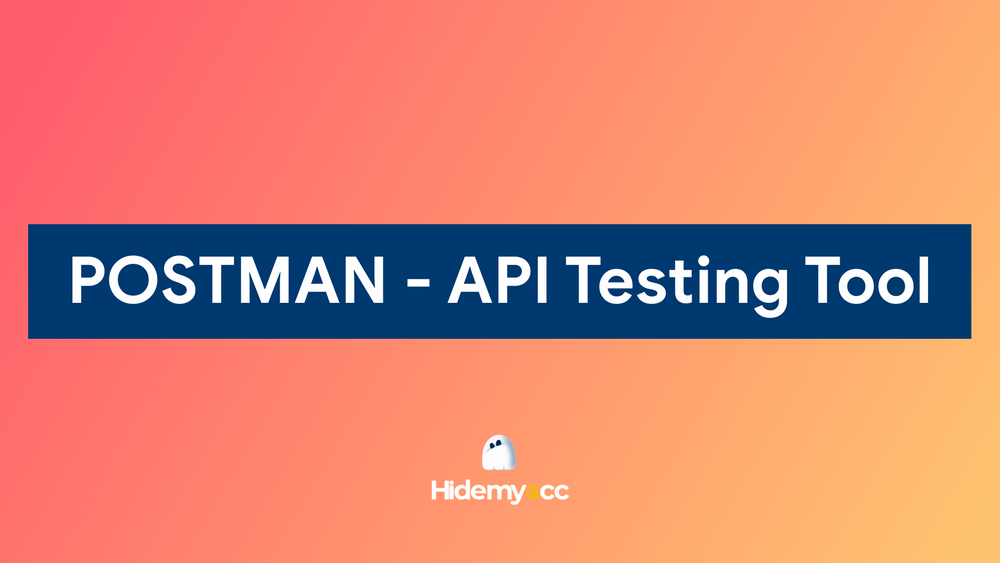Websites utilize CAPTCHA to deter suspicious access and safeguard against potential harm. However, for users, encountering CAPTCHA can be frustrating, prompting us to seek effective bypass methods. In this blog, we'll delve into what CAPTCHA truly is, why you encounter it, and how to bypass it effectively.
What is CAPTCHA and what types are there?
CAPTCHA meaning
CAPTCHA serves as a security measure aimed at preventing automated programs from accessing websites, thereby shielding them from potential threats. It functions by distinguishing between human users and bots, ensuring the authenticity of online interactions.
For websites, CAPTCHA acts as a crucial defense mechanism, safeguarding them from unauthorized access. Conversely, for users, encountering CAPTCHA can be a less-than-ideal experience, particularly for those engaged in making money online. CAPTCHA can pose a significant obstacle, limiting the functionality and ease of interaction with the website.
Types of common CAPTCHA
Understanding the various types of CAPTCHA is essential for navigating the online landscape effectively. Here's an overview of the most common ones:
Text-based CAPTCHA
Among the most prevalent, this type requires users to identify and input the letters and numbers displayed in an image.

Image-base CAPTCHA
This variant prompts users to select pictures containing specific objects, such as traffic lights, vehicles, or crosswalks, from a set of images.

Audio-based CAPTCHA
Users are required to transcribe a series of numbers or letters from an audio clip to verify their humanity.

reCAPTCHA v2
Google's CAPTCHA system that presents users with a checkbox to confirm their human identity. It's widely used across the web.

reCAPTCHA v3
The latest iteration of Google's CAPTCHA system operates in the background, assessing user interactions without explicit prompts. It assigns a score to determine the likelihood of human or bot activity, enhancing user experience.

How to bypass CAPTCHA effectively?
To effectively bypass CAPTCHA, it's crucial to understand that they typically appear when websites detect suspicious online behavior. Here are some strategies to help websites recognize you as a normal user, reducing the frequency of CAPTCHA prompts:
- Change IP Address: If your current IP address is flagged as spam or associated with suspicious activity, consider using a proxy or VPN to obtain a new IP address. However, be cautious and avoid free VPNs or proxies, as they may not provide adequate security.
- Keep cookies enabled: Websites use cookies to track user sessions and behavior. By enabling cookies, websites can recognize returning users, decreasing the likelihood of CAPTCHA prompts.
- Interact naturally: Avoid rapid or automated actions on websites, as these can trigger CAPTCHAs. Instead, interact with websites at a natural, human-like pace. If using automation tools, ensure they mimic human behavior and use high-quality, reputable tools to minimize suspicion.
- Avoid incognito or private browsing: Private browsing modes may limit websites' ability to track your behavior, potentially resulting in more frequent CAPTCHAs. Consider browsing in regular mode when encountering CAPTCHA prompts.
- Consider antidetect browsers: Antidetect browsers allow you to create multiple browser profiles with different fingerprint parameters, helping you manage multiple accounts on the same device without detection by websites. This can reduce suspicion and the likelihood of encountering CAPTCHAs.
- Update browser and plugins: Keep your browser and plugins/extensions up to date to avoid triggering CAPTCHAs or other security measures due to outdated software.
- Use CAPTCHA solving services: While not suitable for all situations, CAPTCHA solving services utilize human labor to bypass CAPTCHAs. Consider using these services when encountering CAPTCHAs while using automation tools to ensure smooth bypassing.
By adopting these strategies, you can effectively bypass CAPTCHA, reduce interruptions, and enjoy a smoother online experience.
>>> Read more about this subject:
- 3 effective ways to change browser fingerprint
- What is Browser Fingerprint? How it tracks you online
- What does your browser fingerprint reveal about you?
Why do you always encounter CAPTCHA?
Encountering CAPTCHAs frequently can indeed be frustrating, but understanding why they appear can help address the issue. Here are some factors to consider:
- IP address: CAPTCHA frequency may increase if you're accessing a website from an IP address associated with high bot activity, such as when using a VPN or sharing an IP address with suspicious users.
- Suspicious activity: Websites may prompt CAPTCHAs if they detect suspicious online behavior, like repeated login failures or attempts to access restricted content, to verify that you're a human user.
- Cookies and tracking: Disabling cookies or using privacy-focused browsing settings might make it harder for websites to recognize you, potentially leading to more CAPTCHAs as they try to confirm your identity.
- Browser settings: Certain browser settings or extensions could interfere with how websites perceive your activity, triggering more frequent CAPTCHAs. Adjusting or disabling these settings/extensions may help reduce CAPTCHA prompts.
If your accounts or activities have been flagged, your browser fingerprints and IP address may be marked as suspicious by website security systems, resulting in persistent CAPTCHAs. To bypass CAPTCHA issues, consider modifying browser settings, clearing cookies and cache, or switching devices or networks. These steps can help reduce CAPTCHA frequency and improve your browsing experience.
Bypass CAPTCHA effectively with antidetect browser Hidemyacc
The antidetect browser is a powerful tool designed to help users bypass CAPTCHA challenges while managing multiple accounts seamlessly and securely. By creating unique environments for browsing, Hidemyacc ensures that users can navigate online without the fear of account suspension.
1. Customize browser fingerprint:
Hidemyacc allows users to modify browser fingerprints, such as the user-agent string, browser version, screen resolution, and installed plugins/extensions. This customization presents websites with a distinct identity, making it easier to bypass CAPTCHA systems that flag repeat patterns or suspicious activities.
2. Proxy support for seamless browsing:
With robust proxy support, Hidemyacc enables users to switch IP addresses effortlessly. By pairing proxies with the antidetect browser, users can mimic new devices with fresh IPs, improving their ability to bypass CAPTCHA systems while maintaining online anonymity.
3. Efficient cookie and bookmark management:
Hidemyacc lets users manage cookies and bookmarks across browsing profiles. Consistent cookie data reduces the likelihood of frequent CAPTCHA challenges caused by session changes or multiple logins, making it even more effective for bypassing CAPTCHA processes.
By leveraging the advanced features of Hidemyacc, users can enhance their browsing experience, improve anonymity, and effectively bypass CAPTCHA barriers. Whether for managing multiple accounts or navigating restricted platforms, Hidemyacc is your go-to solution for overcoming CAPTCHA challenges.
If you're facing challenges with Cloudflare verification and looking for effective ways to bypass it, check out our detailed guide: How to bypass Cloudflare check - Detailed Tutorial for step-by-step instructions and expert tips.
Conclusion
In conclusion, encounter CAPTCHAs can be a frustrating experience. However, if you understand the factors that cause CAPTCHAs, you can minimize them.
Using tools like the antidetect browser Hidemyacc allows users to customize their browser fingerprint with ease, and manage cookies efficiently, ultimately bypassing CAPTCHAs effectively.
To experience the benefits of this antidetect browser, download Hidemyacc now and start your 7-day trial.
If you have any questions, comments, or suggestions, please don't hesitate to reach out to us via Telegram, Skype, or Facebook Messenger support. We're here to assist you.






